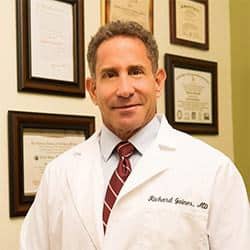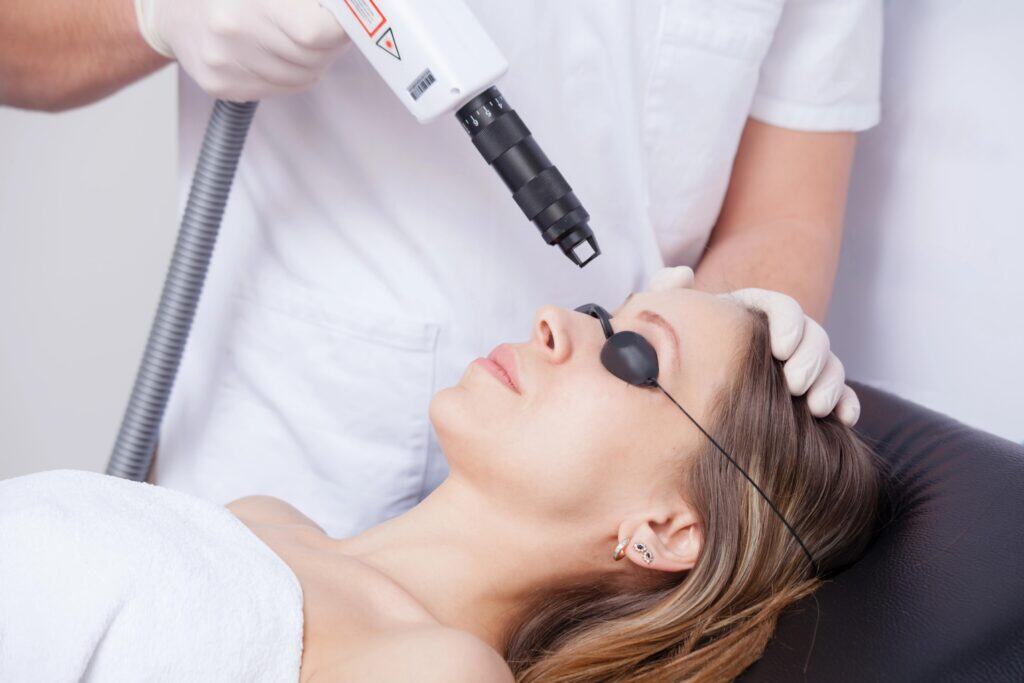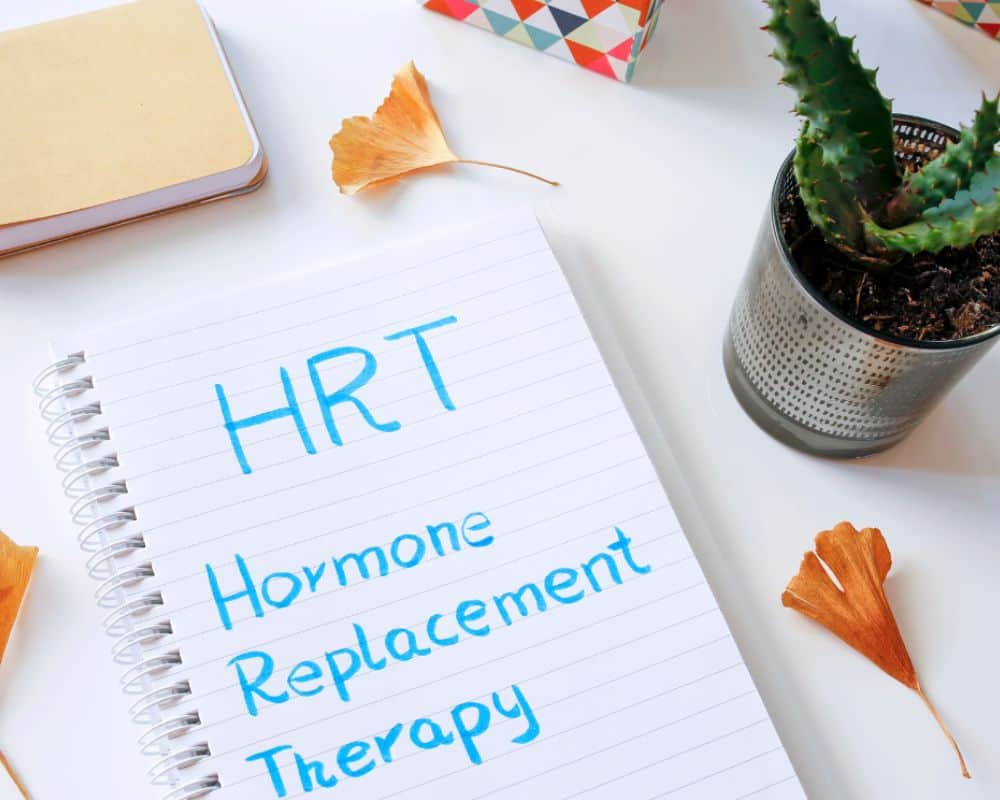Sexual dysfunction is a common issue that affects many people, with research showing that approximately 31% of men and 43% of women experience sexual dysfunction at some point in their lives. What is sexual dysfunction? It refers to a range of problems that interfere with an individual’s ability to enjoy a satisfying sexual life, including issues with sexual desire, arousal, or physical response.
The good news is that most cases of sexual dysfunction are treatable, and individuals struggling with these challenges should not feel alone or believe they have to live with these issues indefinitely. Open communication with your partner and consulting with a doctor is an essential first step toward finding the right treatment.
At LifeGaines Medspa and Aesthetics Center, we specialize in helping individuals treat sexual dysfunction and regain confidence in their sexual life. Our team offers advanced, non-invasive therapies designed to address both physical and emotional aspects of sexual health, providing personalized solutions tailored to your needs.
What Is Sexual Dysfunction?
Sexual dysfunction refers to difficulties that occur during any stage of the sexual response cycle, preventing an individual or couple from achieving satisfaction during sexual activity.
While it’s normal to occasionally feel disinterested in intimacy, persistent issues such as vaginal dryness, hypoactive sexual desire disorder, or other sexual problems can significantly impact your sex life and personal relationships. For individuals who have experienced sexual trauma, these challenges may feel even more pronounced.
If these concerns regularly affect your ability to enjoy intimacy or maintain fulfilling connections, it’s essential to seek guidance from a professional who specializes in treating sexual dysfunction. Taking this step can help you restore balance and improve your sex life.

Understanding Sexual Dysfunction
Sexual dysfunction can affect both men and women, disrupting the ability to enjoy satisfying sexual activity and maintain fulfilling sexual relationships. These challenges may arise from various physical or psychological factors, impacting the body’s natural sexual response.
Below, we break down the common types of sexual problems experienced by women and men, helping to better understand the underlying issues and potential solutions.
Sexual Dysfunction in Women
For women, sexual dysfunction can present in several ways, affecting desire, arousal, orgasm, and comfort during intimacy. The four primary types of sexual problems in women include:
- Desire Disorder – Persistent low sexual desire or little to no interest in sexual activity, which can strain emotional and physical intimacy.
- Arousal Disorder – Feeling emotionally ready for intimacy, but the body fails to respond due to issues like poor blood flow or hormonal imbalances, preventing physical arousal.
- Orgasm Disorder – Difficulty or inability to achieve climax during sexual activity, despite emotional and physical stimulation.
- Pain Disorder – Experiencing significant pain during intercourse, which can result from physical or psychological causes, making intimacy uncomfortable and unenjoyable.
Understanding these challenges is essential for improving a woman’s sexual relationship and overall satisfaction. Treatments are available to help restore a healthy and enjoyable sex life.
Sexual Dysfunction in Men
For men, sexual dysfunction can manifest as issues with sexual excitement, performance, or climax, often stemming from a physical cause or psychological factors.
Common types of sexual problems in men include:
- Desire Disorder – A lack of interest in sexual behavior, resulting in reduced intimacy and connection in relationships.
- Arousal Disorder – Difficulty maintaining sexual excitement, such as erectile dysfunction, which is often caused by underlying health conditions or stress.
- Orgasm Disorder – Challenges with reaching climax or delayed ejaculation, which can be frustrating and impact the overall sexual experience.
- Pain Disorder – Experiencing discomfort or pain during intercourse, often linked to infections, inflammation, or other physical conditions.
Identifying the factors that cause sexual dysfunction in men—whether a physical cause or emotional challenge—is the first step toward finding effective treatment and improving both intimacy and quality of life.

Sexual Dysfunction Symptoms
Sexual dysfunction symptoms can manifest differently in men and women, but they often lead to extreme distress, strained relationships, and difficulty engaging in or enjoying sexual activity. Below are some common symptoms, categorized by gender and those that affect both:
Common Symptoms in Men:
- Erectile dysfunction, or the inability to maintain or achieve an erection suitable for intercourse.
- Difficulty controlling the timing of ejaculation, such as early ejaculation or premature ejaculation.
- Delayed or absent ejaculation, even with sufficient sexual stimulation.
Common Symptoms in Women:
- The inability to reach an orgasm, often linked to poor body image or lack of adequate stimulation.
- Difficulty relaxing the vaginal muscles to allow for comfortable intercourse, leading to pain during intercourse.
- Inadequate vaginal lubrication before or during intercourse, which may result from hormonal changes or mood disorders.
Common Symptoms in Both Men and Women:
- Painful intercourse, which can result from physical or emotional factors.
- A lack of interest in sexual relations, sometimes driven by situational anxiety or other underlying causes.
- Inability to become sexually aroused, affecting satisfaction and intimacy.
- Lack of desire for sexual activity, which may be influenced by stress, illicit drugs, or relationship difficulties.
If these symptoms persist or cause extreme distress, seeking professional help is crucial. Addressing the root causes—whether physical, emotional, or lifestyle-related—can help restore confidence and improve overall sexual health.
Causes of Sexual Dysfunction Disorder
Sexual dysfunction in men and women can arise from a variety of physical problems, psychological problems, or medication side effects.
Below are some of the most common causes:
Physical/Medical Causes
Numerous health conditions can interfere with sexual function in both men and women.
These include:
- Cardiovascular diseases, including heart and vascular disorders.
- Chronic illnesses like diabetes, liver disease, or kidney failure.
- Hormonal imbalances, especially in postmenopausal women experiencing reduced estrogen levels.
- Neurological disorders that affect communication between the brain and the body.
- Substance use, such as alcoholism or illicit drugs, is a well-known contributor to physical problems affecting sexual health.
Psychological Causes
Psychological problems can also play a significant role in sexual dysfunction. Common causes include:
- Anxiety, stress, or situational anxiety about sexual performance.
- Depression and other mood disorders.
- Guilt or shame surrounding sexual behavior.
- Relationship challenges, including marital problems or unresolved conflicts.
- Negative self-image or poor body image, which can reduce sexual confidence.
- The lingering effects of past sexual trauma.
Medications
Certain medications can have side effects that negatively impact sexual function, such as:
- Selective serotonin reuptake inhibitors (SSRIs), commonly used to treat depression.
- Medications prescribed to treat high blood pressure or other chronic conditions.
- Over-the-counter drugs that may influence hormonal or neurological pathways.
Addressing the root cause of sexual dysfunction—whether related to health conditions, medications, or psychological factors—is key to finding effective solutions. Treatment plans often involve managing underlying conditions, counseling, or adjusting medications to restore balance and improve sexual health.
Male Sexual Dysfunction
Male sexual dysfunction refers to any psychological or medical issue that prevents a man or his partner from experiencing satisfaction during sexual activity. This common health issue affects men of all ages but is particularly prevalent in men over 40.
According to experts in sexual medicine, treatment for male sexual dysfunction disorders can help improve sexual satisfaction and function.
Types of Sexual Dysfunction in Men
Three primary types of sexual dysfunction impact men’s ability to engage in or enjoy sexual activity:
1. Ejaculation Disorders
Ejaculation issues are among the most common problems caused by sexual dysfunction. These include:
- Premature Ejaculation (PE): Ejaculation occurs too soon after penetration, often due to situational anxiety, stress, or low self-confidence. Performance anxiety and a lack of communication with a partner are key factors, while serotonin imbalances or certain medications, such as antidepressants, may also play a role.
- Retrograde Ejaculation: During climax, the ejaculate flows backward into the bladder instead of exiting through the penis. This is often linked to diabetic nerve injury, bladder neck surgery, or medications that cause sexual dysfunction.
- Delayed or Inhibited Ejaculation: Ejaculation takes an unusually long time or does not occur at all. Causes may include medication side effects, chronic health issues, alcohol abuse, or psychological problems such as depression, relationship conflicts, or anxiety.
2. Erectile Dysfunction (ED)
Erectile dysfunction is the inability to achieve or maintain an erection suitable for sexual intercourse. This is one of the most well-known sexual disorders, affecting nearly 50% of men between 30 and 65 years old.
Common causes include:
- Blood flow issues, such as atherosclerosis or high blood pressure.
- Nerve damage from conditions like diabetes or surgery.
- Psychological factors such as stress, depression, or marital conflicts.
- Lifestyle habits, such as smoking, lack of exercise, and excessive alcohol or drug use.
Treatment for Erectile Dysfunction:
Improving vascular and heart health is key to addressing ED. Changes to diet, exercise, smoking, and alcohol use can significantly improve sexual function. Addressing emotional concerns through sex therapy or counseling may also be recommended.
3. Low Libido
Low libido refers to reduced interest in sexual activity, often linked to low testosterone levels. Testosterone is crucial for maintaining sexual desire, sperm production, and mood.
Other factors that can cause sexual dysfunction and reduce libido include:
- Chronic illnesses such as diabetes or high blood pressure.
- Psychological factors like anxiety, depression, or stress.
- Medications, particularly antidepressants and blood pressure treatments.
Addressing male sexual disorders often requires a holistic approach, combining medical treatments, lifestyle changes, and emotional support. Interventions like physical therapy, medication adjustments, and sex therapy can significantly improve sexual satisfaction and overall well-being.

Sexual Dysfunction in Women
Many women experience difficulties with sexual function at some point in their lives, while others may face challenges persistently. Female sexual dysfunction can occur at any stage of life and often involves a combination of physical, psychological, and emotional factors.
Women’s sexual response is a complex interplay of emotions, physiology, relationships, beliefs, and lifestyle factors. Disruption in any of these areas can significantly affect arousal, desire, or satisfaction, leading to various types of sexual dysfunction. Treating female sexual dysfunction typically requires a multi-faceted approach to address the underlying causes.
What Does Female Sexual Dysfunction Mean for Women?
The most common sexual problems in women related to sexual dysfunction include:
1. Inhibited Sexual Desire
This refers to a persistent lack of sexual interest or desire for sexual activity. Factors that can cause sexual dysfunction and inhibit desire include:
- Medical conditions like cancer or chronic illnesses.
- Hormonal changes caused by pregnancy, menopause, or chemotherapy.
- Psychological factors such as depression, stress, or fatigue.
- Lifestyle influences, such as childcare demands, work pressures, or boredom from routine sexual activities.
2. Arousal Disorder
For many women, arousal disorder involves difficulty feeling physically aroused during sexual activity, often due to inadequate or unsatisfactory vaginal lubrication. This can be linked to:
- Anxiety or inadequate stimulation.
- Blood flow issues affecting the clitoris or vagina, making arousal more challenging.
- Hormonal imbalances or medications that affect sexual function.
3. Painful Intercourse
Experiencing pain during intercourse—ranging from mild discomfort to severe pain—can result from several causes, including:
- Conditions like endometriosis, pelvic masses, or ovarian cysts.
- Vaginitis or sexually transmitted diseases.
- Insufficient lubrication or scar tissue from surgeries.
- Vaginismus, an involuntary spasm of the vaginal muscles often linked to fear of penetration, sexual phobia, or past trauma.
4. Difficulty Reaching Orgasm (Anorgasmia)
Anorgasmia, or the inability to achieve sexual climax, is a common sexual disorder in women. Causes include:
- Sexual inexperience or lack of knowledge about one’s body.
- Psychological factors like anxiety, guilt, or fear.
- Past sexual abuse or trauma.
- Chronic health conditions, inadequate relaxation, or medications that cause sexual dysfunction.

When to See A Sexual Dysfunction Doctor?
You should consult a doctor if you experience sexual dysfunction that does not improve over time or if you suspect a medical condition might be the cause. Be prepared to share your complete medical history, including any over-the-counter or prescription medications, as these can significantly affect sexual function and may contribute to the issue.
It’s important to address sexual dysfunction promptly, as the longer it persists, the more likely it is to increase your anxiety and stress levels, further perpetuating the problem. Open communication is also key—discussing your concerns with your partner and seeking professional advice are essential steps toward improving your sexual interest and overall well-being.
If you’re struggling with sexual dysfunction, don’t hesitate to reach out to LifeGaines Medspa and Aesthetics Center in Boca Raton, Florida. Our team specializes in helping men and women address the factors that affect sexual desire and function. Whether the cause is physical, emotional, or related to a medical condition, we provide personalized treatment plans to help restore your confidence and improve your quality of life. Contact LifeGaines today to take the first step toward reclaiming your intimacy and health.

Dr. Richard Gaines is the Chief Medical Officer of LifeGaines Med Spa in Boca Raton. He attended the Boston University School of Medicine, completed an internship at the Tufts University of Medicine, and his residency at the Harvard School of Medicine. Today, Dr. Richard Gaines is at the forefront of the rapidly evolving sexual health paradigm. He continues to innovate with new anti-aging treatments to enhance and extend the lives of his patients. His effective forms of regenerative medicine, hormone therapy, and wellness treatments are designed to help people of all ages improve their energy, drive, sexual health, and overall wellness goals.


